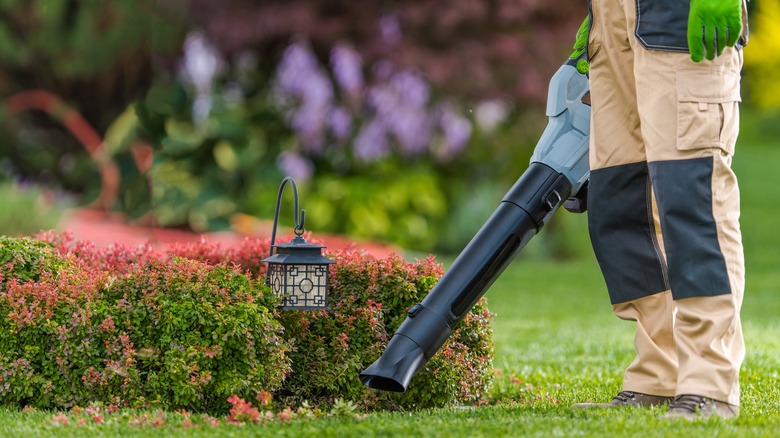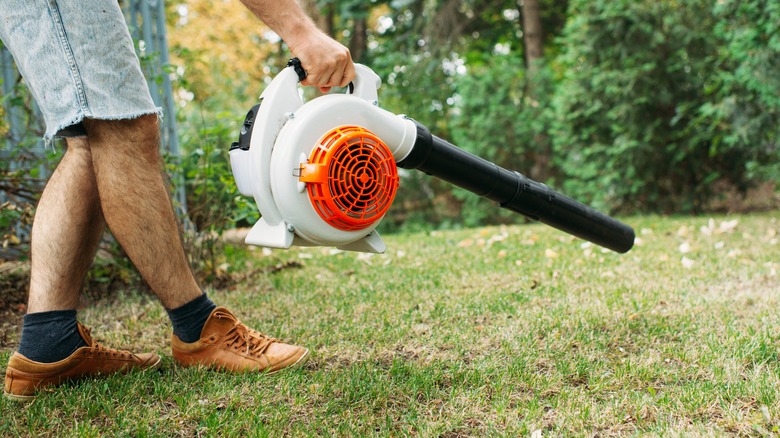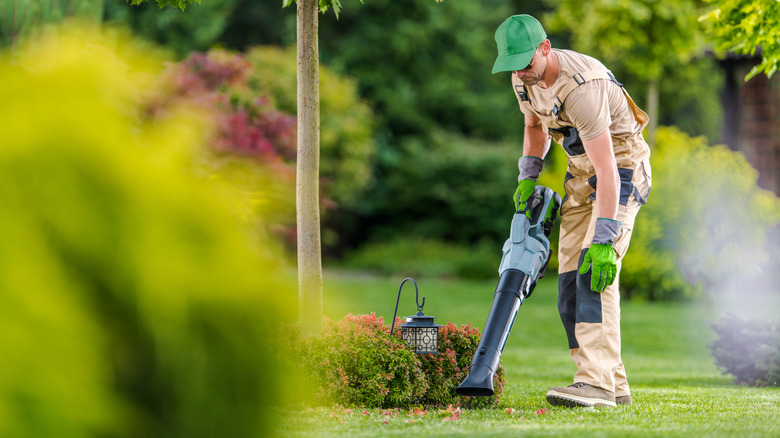Leaf Blower - Essential Gardening Tool Or One Better Overlooked?
We may receive a commission on purchases made from links.
If you are a gardener, you might rely on tools to keep your meticulously cared-for oasis pristine. These tools often include pruning shears, hand trowels, or gardening scissors that make it possible to care for plants properly. Sometimes, you need to use more powerful devices, like leaf blowers, to tackle debris and grass clippings that have found their way into your garden. Before reaching for a leaf blower, consider these pros and cons to help decide whether you should really be using the gardening implement. Of course, leaf blowers are great for removing dead leaves, yard trimmings, and other unwanted debris from your garden. However, they can also negatively impact air quality if they are gas powered. Leaf blowers are also quite noisy.
For many homeowners, leaf blowers are a critical component of garden maintenance. Still, they are not the right fit for everyone. Exploring the negatives and positives associated with this widely-used tool will help you make a well-informed choice on whether or not to use one to maintain your garden. If you find that the cons outweigh the pros, know that there are alternatives you can use to achieve similar results.
Leaf blowers make it easy to keep your garden neat
Leaf blowers are convenient tools that simplify garden maintenance. They offer numerous benefits for homeowners. For example, those who have trouble bending or reaching might only be able to get rid of unsightly debris with the help of a leaf blower. These straightforward machines also reduce the amount of time it takes to clear a garden. In most cases, it takes far longer to remove debris by hand.
Employing a leaf blower can make your yard and other outside areas look more well maintained altogether. You can use it to remove any lawn clippings or leaves that would otherwise cause a driveway or walkway to appear unkempt. If you are preparing to sell your house, your yard is among the many areas of your home you need to clean before a showing. A leaf blower makes this chore far easier. This is yet another benefit to using the hand-held device. With all of these positives, it's no surprise that this product is so popular. However, many leaf-blower owners are likely unfamiliar with some of the cons associated with the tool.
Leaf blowers can harm air quality and lead to noise complaints
One of the most concerning downsides of gas powered leaf blowers is their environmental impact. Gas leaf blowers are more powerful and often yield better results, so many gardeners prefer them to their electric counterparts. Unfortunately, they also release harmful emissions into the air. A 2023 report from Environment America, U.S. PIRG, and Frontier Group revealed that garden tools, including gas-powered leaf blowers, released nearly 700,000 tons of carbon dioxide in 2020. These shocking results might lead you to rethink using a gas-powered leaf blower, especially if you aim to make your home more eco-friendly.
Although electric leaf blowers do not have the same effect, they still run on batteries that often need to be disposed of. The frequent repurchasing and disposal of these batteries may result in excessive carbon emissions, as well, due to the shipping process. The power consumption of these batteries is also high, requiring up to 1,500 watts to operate at full capacity.
Along with their environmental impact, leaf blowers can also cause noise disturbances. This might lead to complaints from neighbors that can leave you questioning whether the use of a leaf blower is even worth it. Eco-friendly alternatives to leaf blowers include lawn sweepers, leaf grabbers, and the old-fashioned rake. Now that all of these pros and cons are laid out, it should be a bit easier to decide whether a leaf blower should be a part of your garden maintenance routine.


